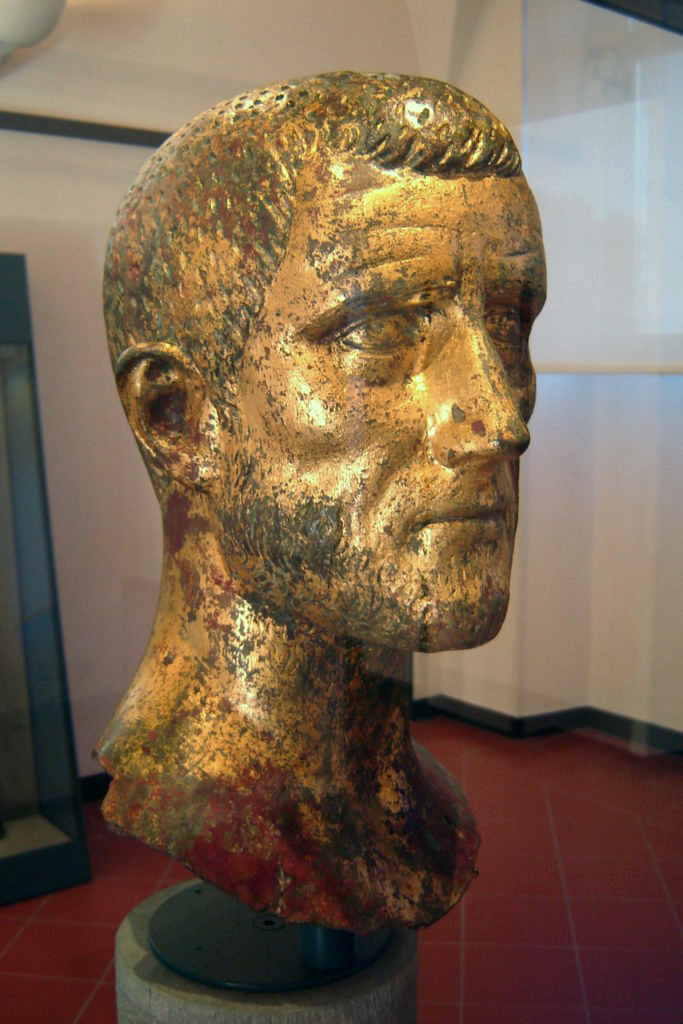The 14th-century English poet Geoffrey Chaucer is seemingly the first to have associated St. Valentine’s Day with erotic desire and romantic love. In his poetic meditation on love as seen throughout creation, he sees that Nature has destined that it be: “on Seynt Valentynes day, / Whan every foul cometh ther to chese his make,” that is, “on Saint Valentine’s day / when every fowl comes there to chose his mate.” From these few lines developed many other traditions and legends about St. Valentine and his secretly marrying young Roman Christians against imperial edict, including notes that he signed “From your Valentine” to those he helped.

According to the accounts, Valentine was arrested by order of Emperor Claudius (this must be Claudius II, “the Goth,” who ruled from 268-270) and was questioned about what he believed about the Roman gods. Valentine responded: “If you knew the gift of the Lord, you and the whole Republic would rejoice. You would renounce the demons and idols that your hands have made and believe in God the Father, the all-powerful Creator of heaven, earth, the sea, and all the things in it. You would believe in his Son, Jesus Christ.” The Emperor was apparently astonished and compelled by Valentine’s conviction in the face of certain death. The Emperor’s officers convinced him, nonetheless, to keep Valentine in custody.

An official of the emperor named Asterius was put in charge of Valentine, and when he heard him praying: “O God of all things … free us from this present time and lead us from darkness into the true light,” Asterius asked if this “God of light” could heal his daughter, who was blind. Valentine prayed — “with eyes full of tears” — and the girl was healed. Asterius immediately asked Valentine to baptize him and his whole household. When this got reported to the Emperor, the other officials in the court were so enraged that they went to Asterius’s house and dragged out a number of people from the household (Marius and Martha among them) whom they eventually executed. Valentine was beheaded on the Via Flaminia, not far from the Milvian Bridge where Constantine would invade Rome a generation later.

Whereas our typical experience of Valentine’s Day has more to do with Chaucer than the saint’s life, it is still an opportunity to allow Valentine’s holy life and witness to affect our experience even of the romantic love that characterizes the celebrations of the day. In our world, so many young couples who want to live chastely are told that it isn’t realistic, it isn’t possible. St. Valentine can give us the strength to live the chastity we’re called to, not just in words but in actions.

Read more:
The day St. Valentine’s relics got to Ireland

